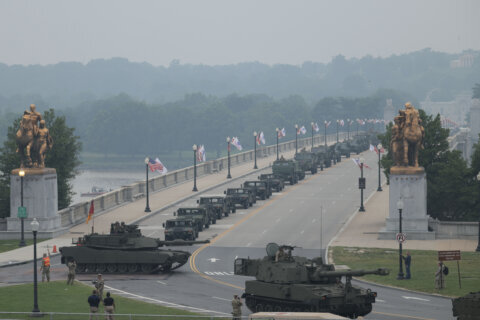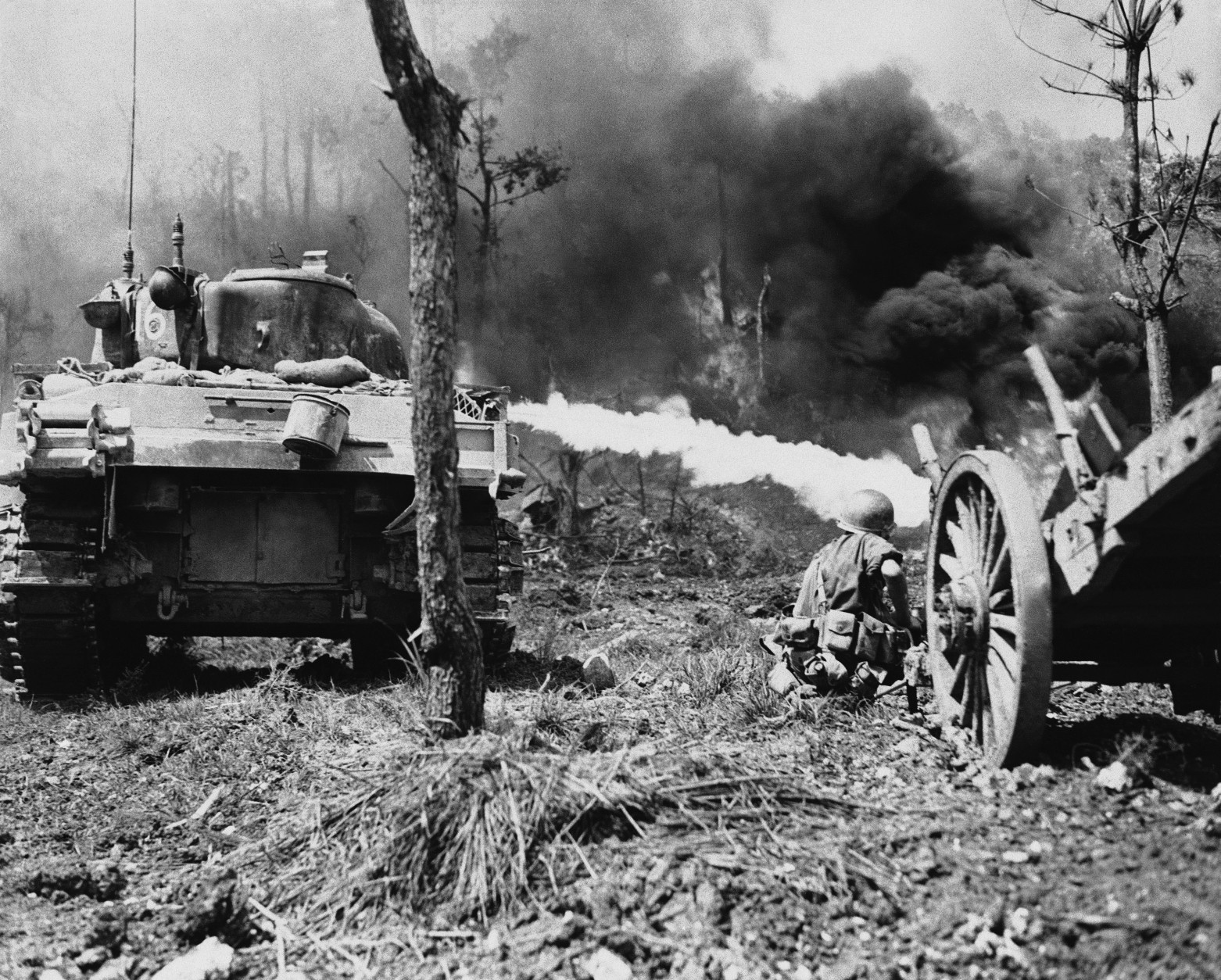
In 1945, American forces launched the amphibious invasion of Okinawa during World War II. (U.S. forces succeeded in capturing the Japanese island on June 22.) Here, a flame-throwing tank of the U.S. Tenth Army on Okinawa, Japan moves up close to a Japanese position to destroy it with flames during the terrific fighting on the island in the spring of 1945. An infantryman of the 96th Infantry Division crouches, ready to get any of the enemy who might have avoided the flames. (AP Photo)
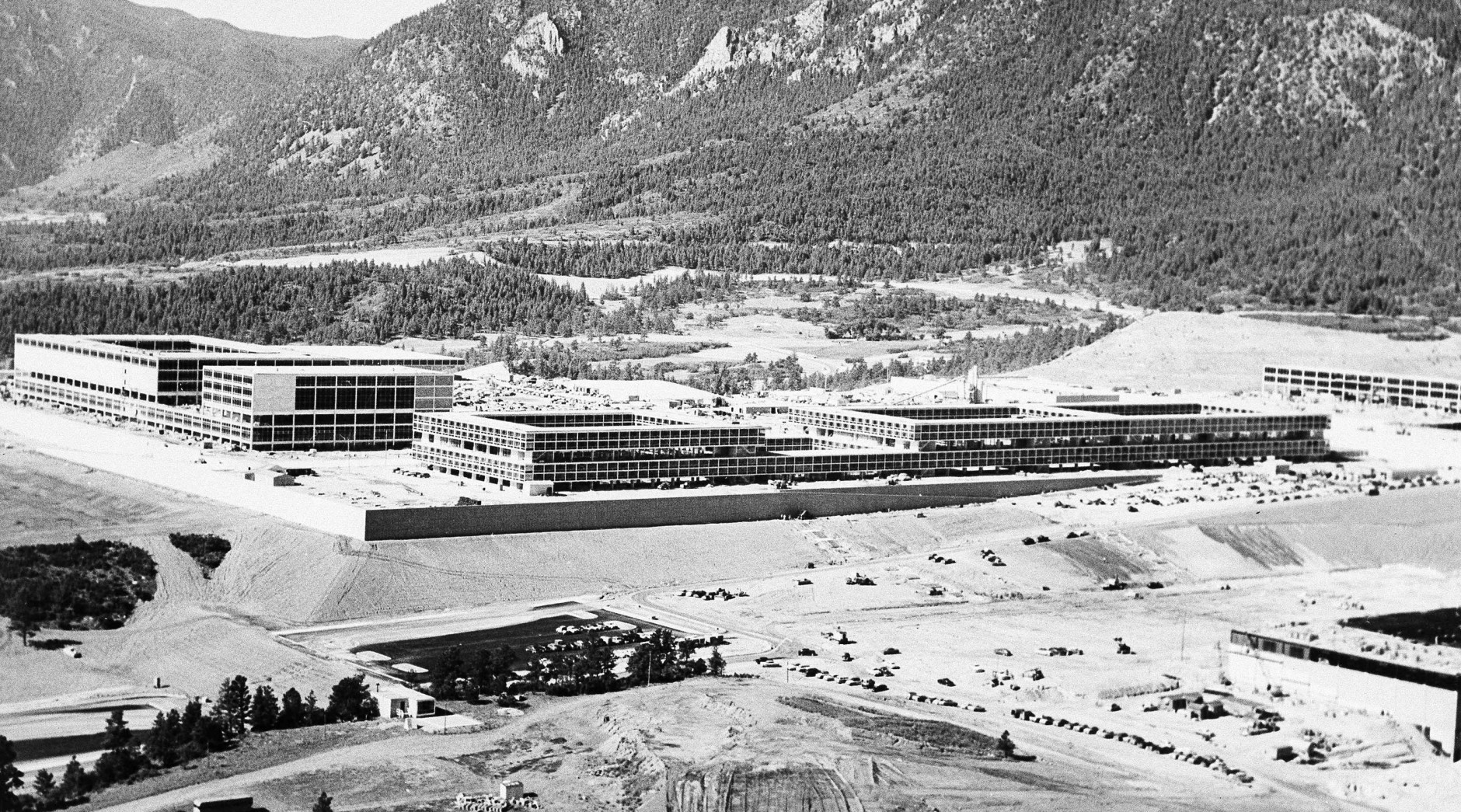
In 1954, the United States Air Force Academy was established by President Dwight D. Eisenhower. Here, an aerial view shows the nearly completed U.S. Air Force Academy, 60 miles south of Denver in Colorado Springs, Aug. 1, 1958. (AP Photo)
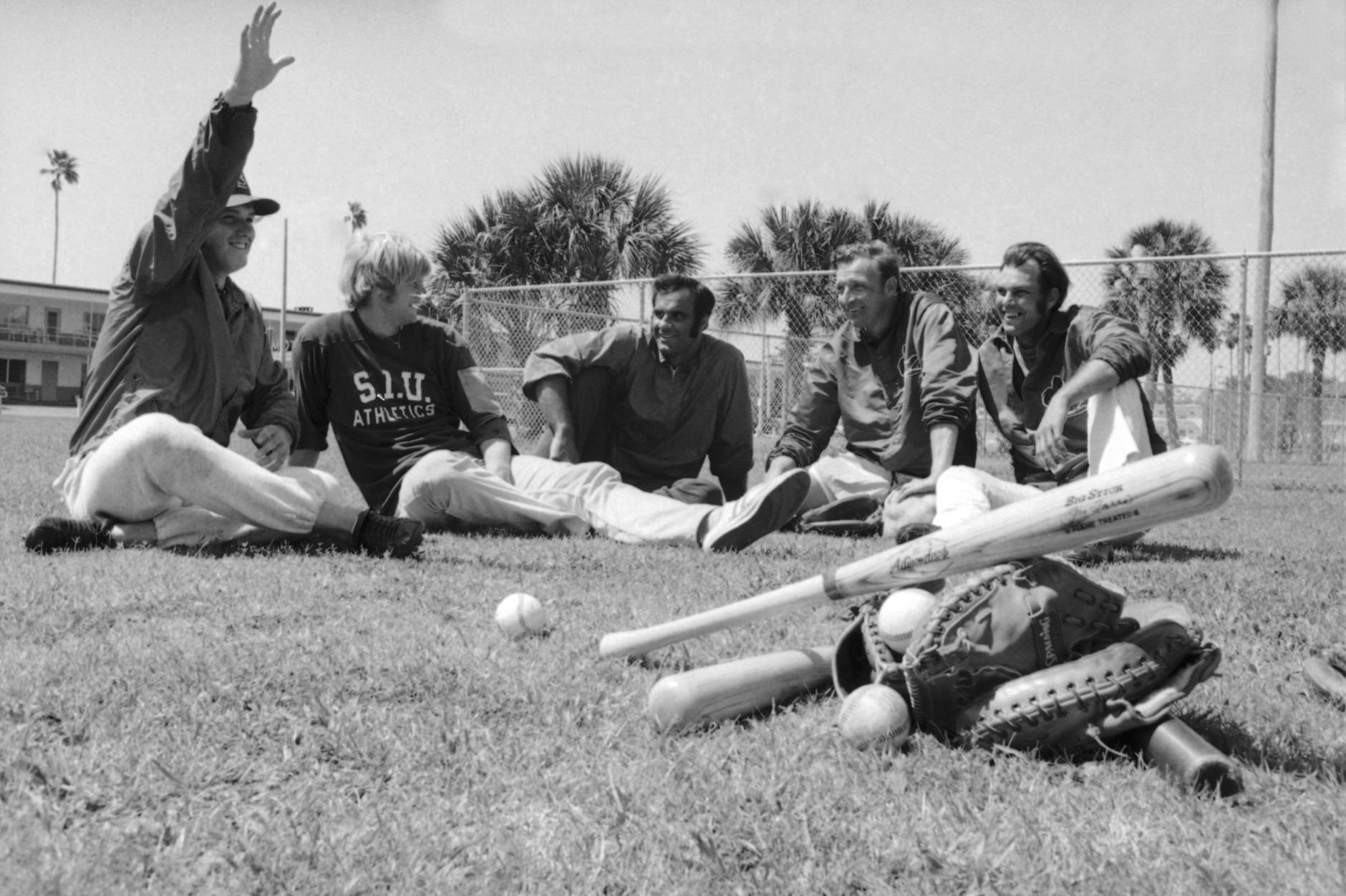
In 1972, the first Major League Baseball players’ strike began; it lasted 12 days. In this photo, locked out of the St. Louis Cardinals baseball spring training site, in St. Petersburg, Florida, on April 3, 1972, these five players worked in a city park . From left, pitcher Reggie Cleveland; pitcher Jerry Reuss; third baseman Joe Torre; pitcher Hoe Drabowsky and pitcher Joe Grzenda. (AP Photo)
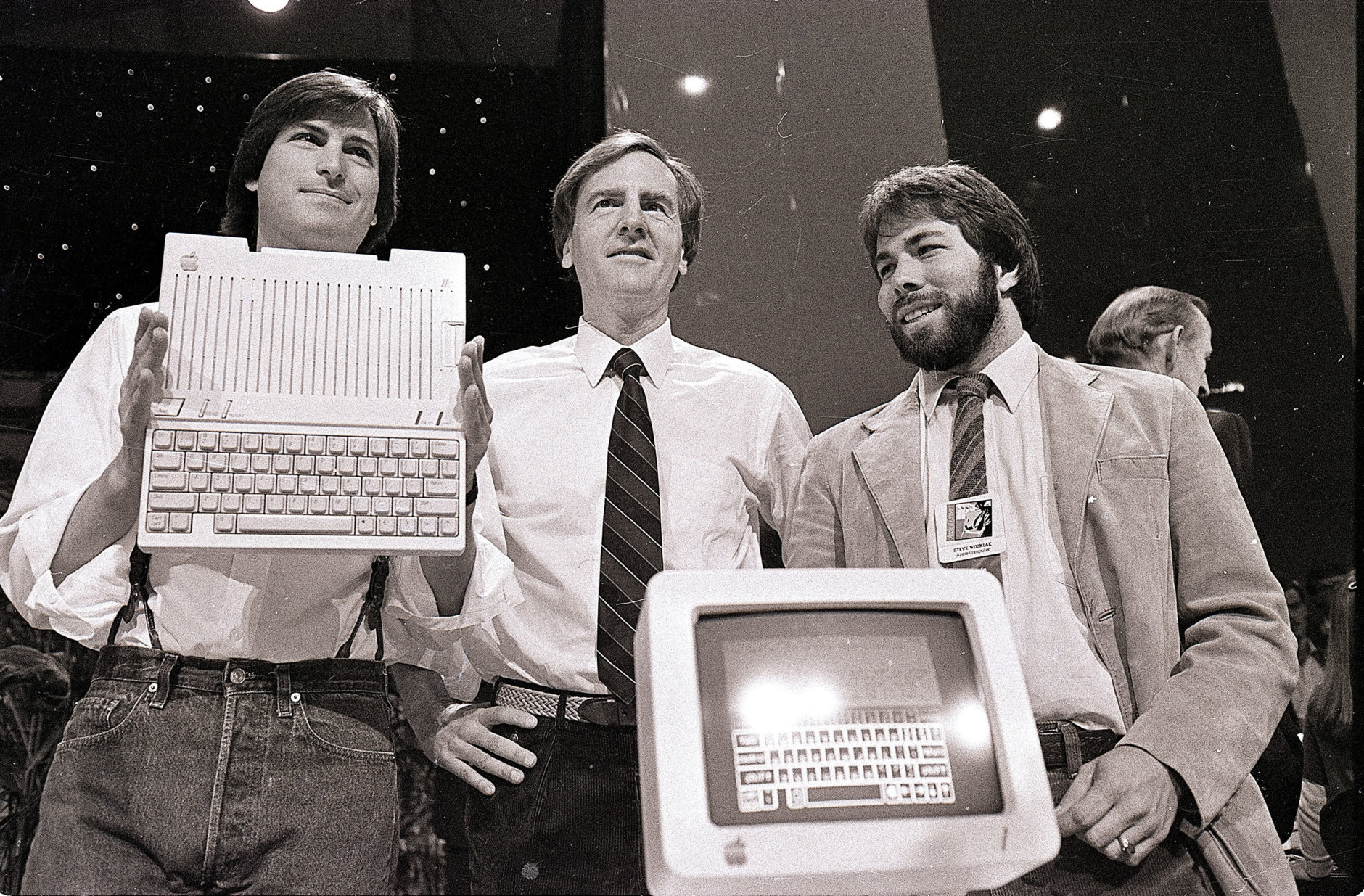
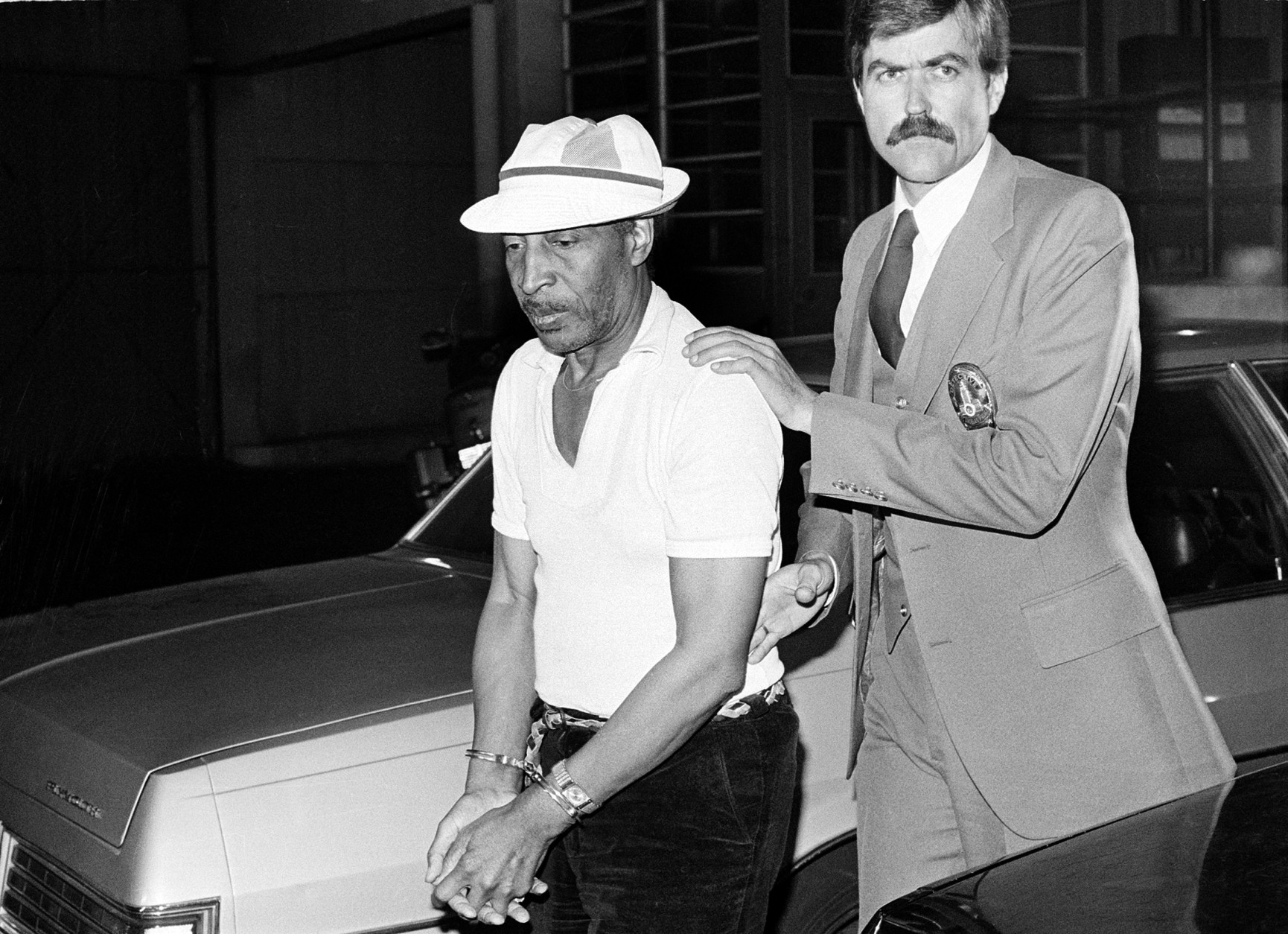
In 1984, recording star Marvin Gaye was shot to death by his father, Marvin Gay (cq), Sr. in Los Angeles, the day before his 45th birthday. (The elder Gay pleaded guilty to voluntary manslaughter, and received probation.) An unidentified Los Angeles Police homicide detective leads handcuffed Marvin Gay Sr. into LAPD central headquarters at Parker Center, Los Angeles, Calif., on April 1, 1984. Gay Sr. was taken into custody in connection with the shooting death of his son, singer Marvin Gaye Jr., which occured while Gaye Jr. was visiting his parents’ home. (AP Photo/Lennox McLendon)
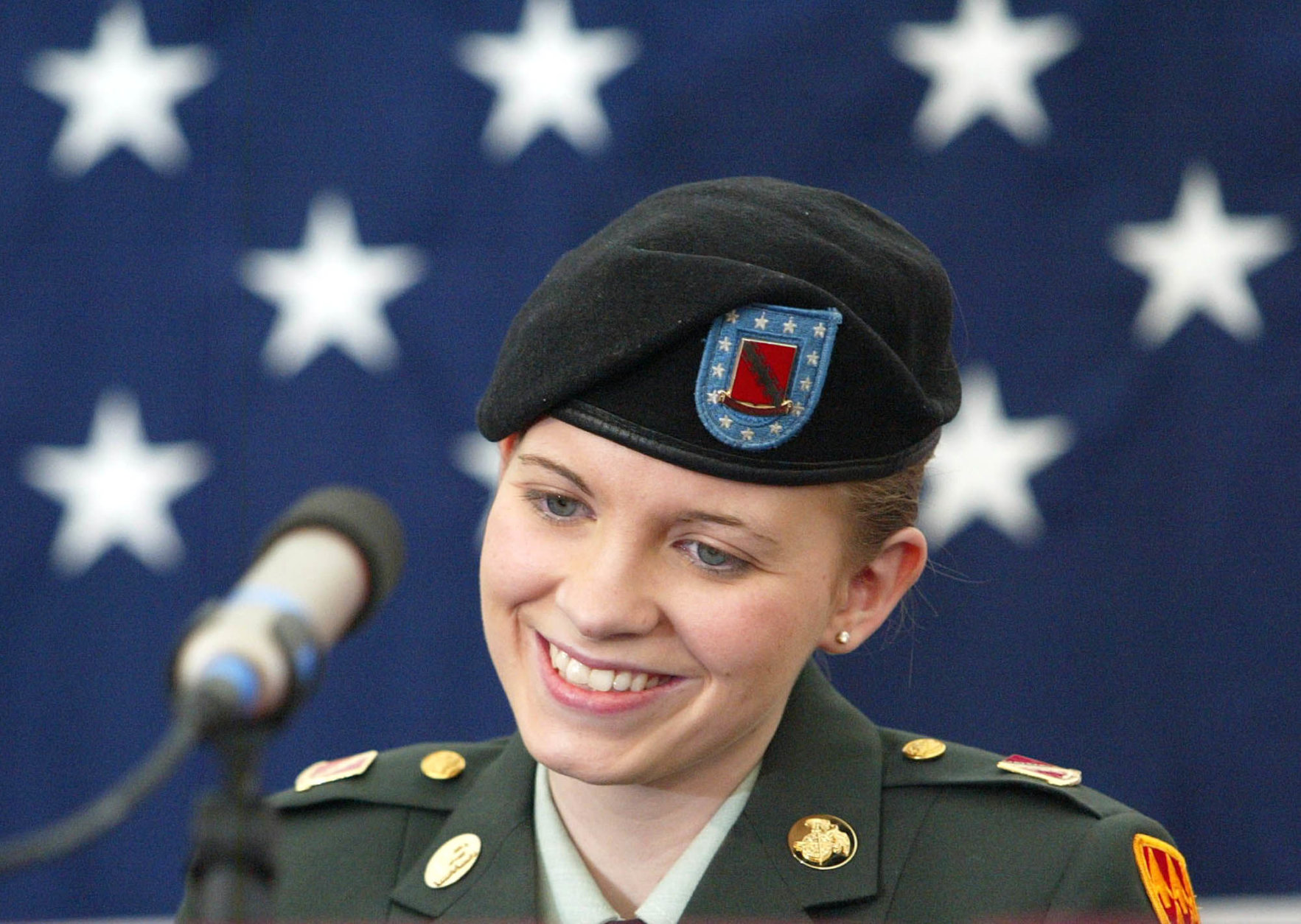
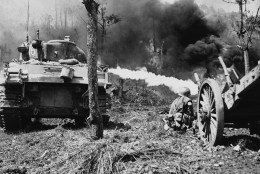
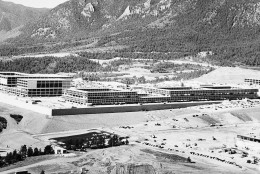
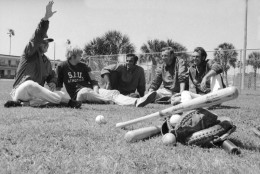
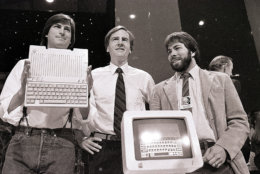
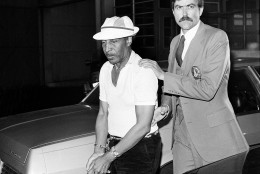

Today is Monday, April 1, the 91st day of 2019. There are 274 days left in the year.
Today’s Highlight in History:
On April 1, 2003, American troops entered a hospital in Nasiriyah (nah-sih-REE’-uh), Iraq, and rescued Army Pfc. Jessica Lynch, who had been held prisoner since her unit was ambushed on March 23.
On this date:
In 1789, the U.S. House of Representatives held its first full meeting in New York; Frederick Muhlenberg of Pennsylvania was elected the first House speaker.
In 1933, Nazi Germany staged a daylong national boycott of Jewish-owned businesses.
In 1945, American forces launched the amphibious invasion of Okinawa during World War II. (U.S. forces succeeded in capturing the Japanese island on June 22.)
In 1954, the United States Air Force Academy was established by President Dwight D. Eisenhower.
In 1970, President Richard M. Nixon signed a measure banning cigarette advertising on radio and television, to take effect after Jan. 1, 1971.
In 1972, the first Major League Baseball players’ strike began; it lasted 12 days.
In 1976, Apple Computer was founded by Steve Jobs, Steve Wozniak and Ronald Wayne.
In 1983, tens of thousands of anti-nuclear demonstrators linked arms in a 14-mile human chain spanning three defense installations in rural England, including the Greenham Common U.S. Air Base.
In 1984, Marvin Gaye was shot to death by his father, Marvin Gay (cq), Sr. in Los Angeles, the day before the recording star’s 45th birthday. (The elder Gay pleaded guilty to voluntary manslaughter, and received probation.)
In 1987, in his first speech on the AIDS epidemic, President Ronald Reagan told doctors in Philadelphia, “We’ve declared AIDS public health enemy no. 1.”
In 1988, the scientific bestseller “A Brief History of Time: From the Big Bang to Black Holes” by British physicist Stephen Hawking was first published in the United Kingdom and the United States by Bantam Books.
In 1992, the National Hockey League Players’ Association went on its first-ever strike, which lasted 10 days.
Ten years ago: President Barack Obama, in London for an economic crisis summit, sought to rally the world’s top and emerging powers to help cope with a global downturn; chanting protesters clashed with riot police in the British capital. Sixteen people, most of them oil workers, were killed when a Super Puma helicopter crashed into the North Sea off Scotland’s northeast coast. In a college baseball blowout, Eastern Kentucky was leading Kentucky State 49-1 when the teams stopped playing after five innings (they also agreed to cancel the second game of a scheduled double-header).
Five years ago: Mocking his critics, President Barack Obama boasted that 7.1 million people had signed up for his health care law, and said “the debate over repealing this law is over.” Congress demanded answers from General Motors’ new CEO, Mary Barra, on why the automaker had taken 10 years to recall cars with a faulty ignition switch linked at that time to 13 traffic deaths; Barra acknowledged that the company took too long to act.
One year ago: Writer and producer Steven Bochco, known for creating the groundbreaking TV police drama “Hill Street Blues,” died after a battle with cancer; he was 74. Authorities said the SUV that had carried members of a large, free-spirited family to their deaths several days earlier may have been driven intentionally off a scenic California cliff; six adopted children were killed along with their parents.
Copyright © 2026 The Associated Press. All rights reserved. This material may not be published, broadcast, written or redistributed.

